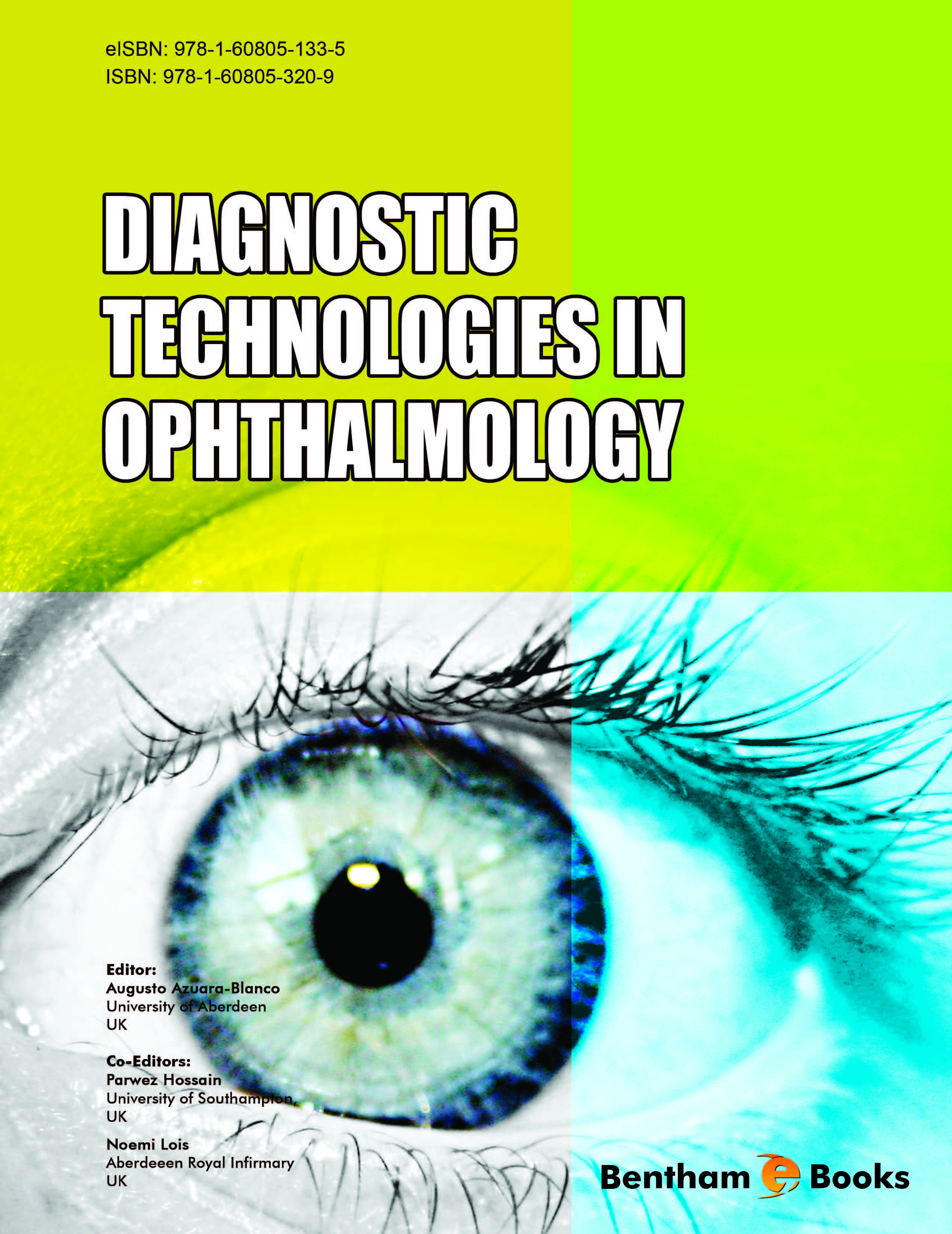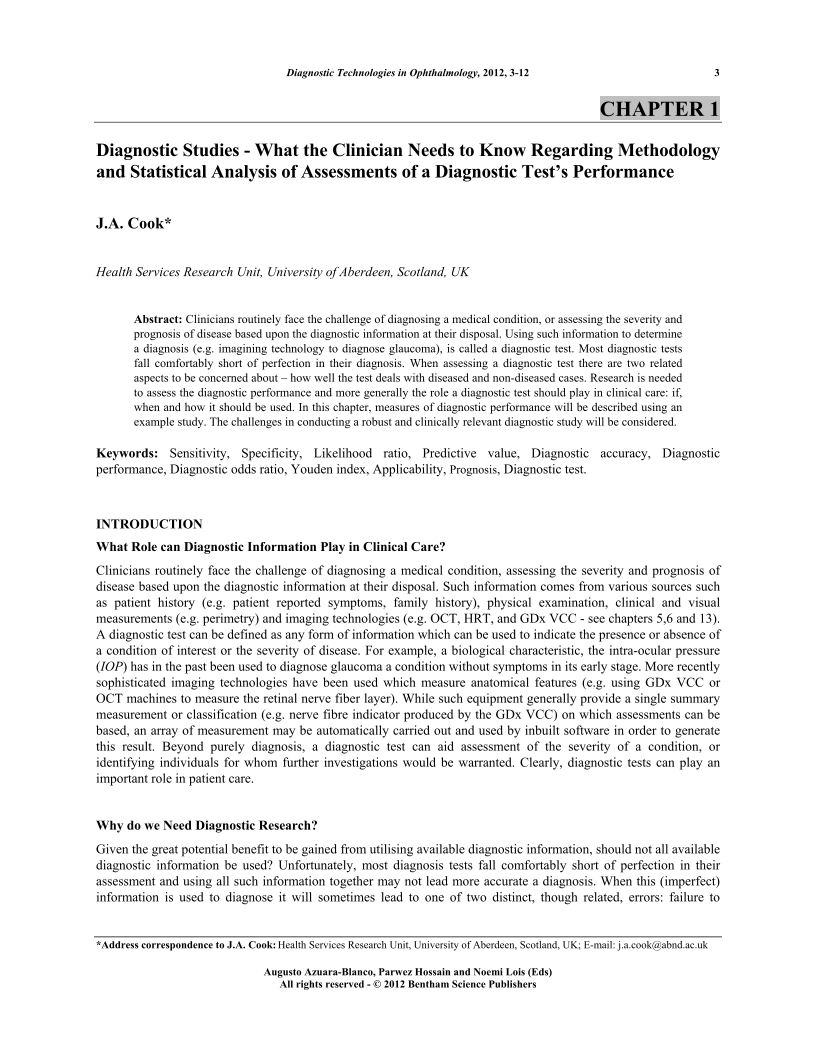Diagnostic Studies - What the Clinician Needs to Know Regarding Methodology and Statistical Analysis of Assessments of a Diagnostic Tests Performance

- By J.A. Cook1
-
View Affiliations Hide Affiliations1 Health Services Research Unit, University of Aberdeen, Scotland, UK
- Source: Diagnostic Technologies in Ophthalmology , pp 3-12
- Publication Date: May 2012
- Language: English
Diagnostic Studies - What the Clinician Needs to Know Regarding Methodology and Statistical Analysis of Assessments of a Diagnostic Tests Performance, Page 1 of 1
< Previous page | Next page > /docserver/preview/fulltext/9781608051335/chapter-1-1.gif
Clinicians routinely face the challenge of diagnosing a medical condition, or assessing the severity and prognosis of disease based upon the diagnostic information at their disposal. Using such information to determine a diagnosis (e.g. imagining technology to diagnose glaucoma), is called a diagnostic test. Most diagnostic tests fall comfortably short of perfection in their diagnosis. When assessing a diagnostic test there are two related aspects to be concerned about how well the test deals with diseased and non-diseased cases. Research is needed to assess the diagnostic performance and more generally the role a diagnostic test should play in clinical care: if, when and how it should be used. In this chapter, measures of diagnostic performance will be described using an example study. The challenges in conducting a robust and clinically relevant diagnostic study will be considered.
-
From This Site
/content/books/9781608051335.chapter-1dcterms_subject,pub_keyword-contentType:Journal -contentType:Figure -contentType:Table -contentType:SupplementaryData105

